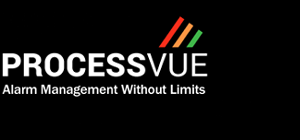Question
How many alarms do you have in your alarm system, and more importantly, how many of them are useful?
Unnecessary alarms greatly reduce the effectiveness of operators and compromise their ability to address critical alarms, which can be extremely costly and potentially lead to regulatory compliance breaches.
Whether your alarm system is a new system in the design and implementation stages, or a mature system which has been in use for many years; it is very likely that there are too many alarms which serve no useful purpose, unless you have undertaken a rationalization exercise.
Rationalisation is defined in the alarm management standards as a “process to review potential alarms using the principles of the alarm philosophy, to select alarms for design, and to document the rationale for each alarm”, and is appropriate to both green field and mature sites.
This highlights the importance of alarm rationalization, which involves carefully reviewing and optimizing the alarm system to reduce the number of false or redundant alarms and ensuring that only the most critical and relevant alarms are presented to operators.

Rationalising your alarms
For new systems, rationalization is carried between the identification and detailed design phases before implementation, (highlighted blue in the alarm management lifecycle); and for existing systems, it is carried out whilst the system is in use during the operation and maintenance phases (highlighted blue in the alarm management lifecycle).
Regardless of whether your system is new or mature, the process is the same.
Every identified alarm must be reviewed for its suitability according to the criteria defined in your alarm philosophy. Those which do not meet the criteria of your alarm philosophy should be removed.
By carefully reviewing and removing these unnecessary alarms, and prioritising and documenting the remaining alarms, you can improve the overall effectiveness of your alarm management system.
Part of the process is to document as a minimum; the reason for an alarm, what the consequence is if the alarm is missed, and the appropriate operator response.
Collation of this information within your master alarm database allows the creation of an Alarm Response Manual which should ensure your operators are aware of how to respond to each alarm. The Alarm Response Manual is particularly important for defining actions for those alarms which rarely occur and can be an invaluable training tool.
A non-existent or out of date Alarm Response Manual (especially for critical or high priority alarms) would be deemed poor practice during a safety or regulatory audit.
How long it takes to rationalise your alarm population is dependent on the number of alarms in your system, the number of parameters to be reviewed as set out in your alarm philosophy, the usability of your rationalization tool, and how thoroughly you prepare. It is, however, not a short exercise.
Before attempting to rationalise your alarm population, it is essential to have two things in place:
- An alarm philosophy
The process for rationalising alarms is defined in the alarm philosophy document along with the methodology used to prioritize alarms. The alarm philosophy document provides a clear and concise framework for managing alarms, including the definition of what constitutes an alarm, how alarms are prioritized, and how they are to be addressed.
- A master alarm database
Your master alarm database, such as MAC Solutions’ ProcessVue Guardian; should be populated with all alarms in the alarm system prior to beginning rationalisation, and should be equipped with tools to assist in the prioritisation, documentation and management of change processes.
Benefits of rationalising your alarms
Once you have rationalized your alarm population and have only the alarms you need to run your process safely and effectively:
- Your operators will be able to focus on managing the process instead of simply servicing alarms
- You may achieve better regulatory compliance through fewer missed important alarms (increased safety and environmental performance)
- There will be fewer production losses due to avoidable process trips or interruptions
- Your operators will be less stressed
HOW WE CAN HELP YOU
Our experienced consultant will work with you to help you in a number of ways:
- Assist you to prepare for your rationalisation exercise, ensuring everything is in place before you start
- Create your master alarm database by importing all your alarms into ProcessVue Guardian
- Setting up ProcessVue Guardian to meet with your rationalisation requirements, ensuring it includes your chosen prioritisation methodology and risk/consequence tables
Once your master alarm database is in place and you are ready to begin the rationalization process, our consultant can either:
- Facilitate your first review sessions, coaching your team in the process so you can complete the task
Or:
- Facilitate and lead the whole review process for you
Whichever option you choose, we will be available to help and guide you whenever you need us.
